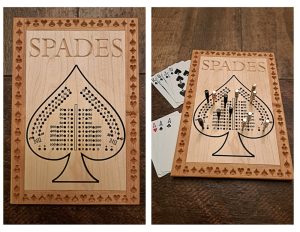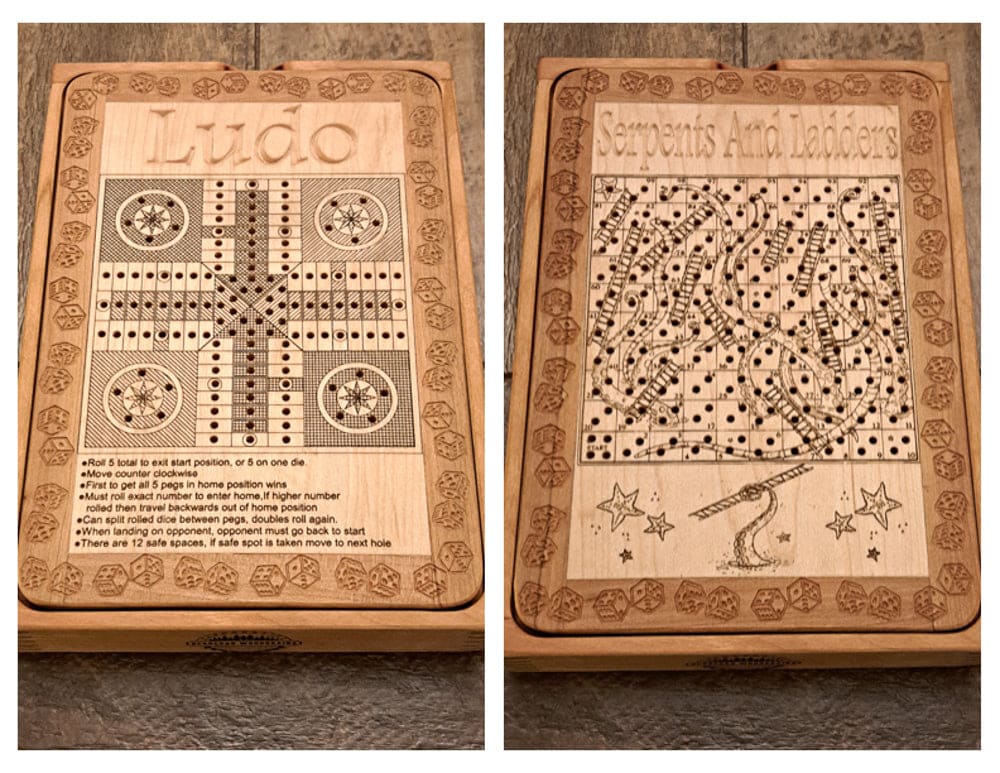Free Shipping On Orders Over $150 To Canada And US
Spades Rules
Spades Rules
Setup:
Spades is played by four people in two teams, sitting opposite each other. The cards rank ace as high to the 2 as low. Spades are always trump. Each player receives 13 cards. Bidding and play occur in a clockwise direction. In the bidding phase you declare the number of tricks you intend to win; in the playing phase you try to win those tricks.
Object:
Each player bids a number of tricks. The bids of the two partners are then added together and the total is the number of tricks that team must try to win in order to get a positive score.The object of the game is to fulfill the total bid by your team.
Bidding:
You may choose to bid Nil, meaning you intend not to win any tricks. Before you even pick up your cards, you may bid Double Nil or Blind Nil. This is the same as a Nil bid, except all rewards and penalties are doubled. If one or both players in a partnership bid Nil, their bids are scored independently, then combined to determine the team’s score.
Play:
You must follow suit if you can, otherwise you may take the trick with a trump or discard something from a non-trump suit. Spades cannot be led until they’ve been broken, used to trump an earlier lead or the leader has nothing but spades left in hand.. A trick is won by the highest trump or by the highest card of the suit led. The player that won the trick then goes first.
Scoring:
If a team takes at least as many tricks as its bid calls for, it receives 10 points for each trick in the bid. Additional tricks (overtricks) are called “bags” and are worth an extra one point each. A team who over several deals accumulates ten or more bags has 100 points deducted
from its score. Any bags beyond ten are carried over to the next cycle of ten overtricks (bags).
If a team does not make its bid, they lose 10 points for each trick they bid.
If a bid of Nil is successful, the Nil bidder’s team receives 100 points. This is in addition to the score won (or lost) by the partner of the Nil bidder for tricks made. If a bid of Nil fails – that is, the bidder takes at least one trick – the bidder’s side loses 100 points, but still receives any amount scored for the partner’s bid.
The team that reaches 500 points first wins the game. If both teams reach 500 points in a single deal, the team with the higher score wins.
Strategies:
Your strategy during play should depend somewhat on the total bid for tricks in your team. If the total bid is very high (12 or more tricks), you need to be aggressive. Fight for tricks, throw off low cards whenever possible. Avoid taking any tricks from your partner. By doing so, you may prevent your opponents from fulfilling their contract. Sometimes it’s better to lose tricks. If the bid is low (10 or less), you should avoid taking any tricks you hadn’t counted on. Another tactic you can use when trying to make your bid is to watch your partner’s plays closely. If he or she inadvertently loses a trick that’s normally a win (for example, if your partner gets trumped early), try to make it up by taking one trick above your own bid. If an opponent bids Nil, you will need to make sure that he or she takes one trick. To do this, play the lowest cards possible, and don’t worry about fulfilling your contract (assuming the total bid is low).





